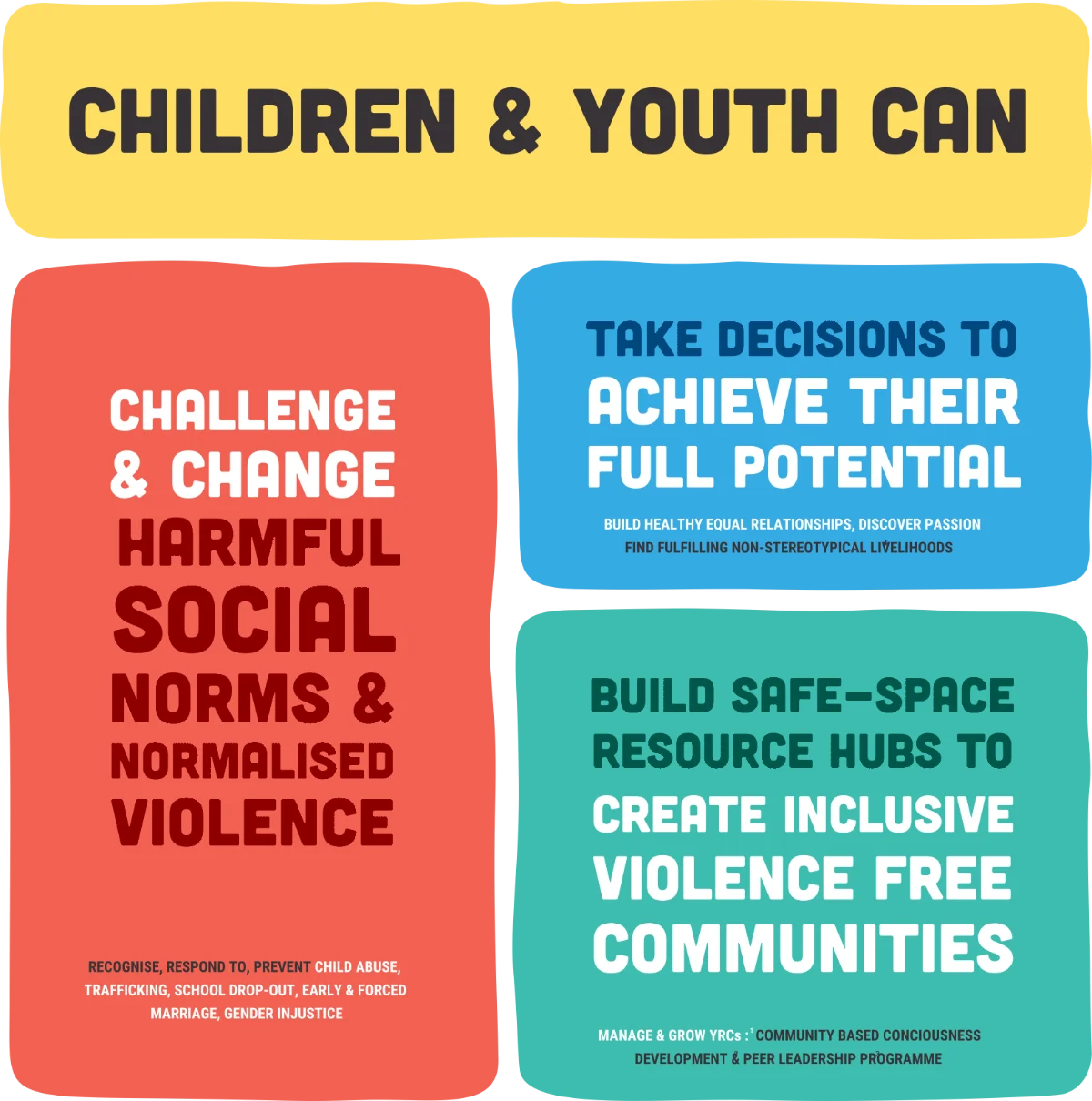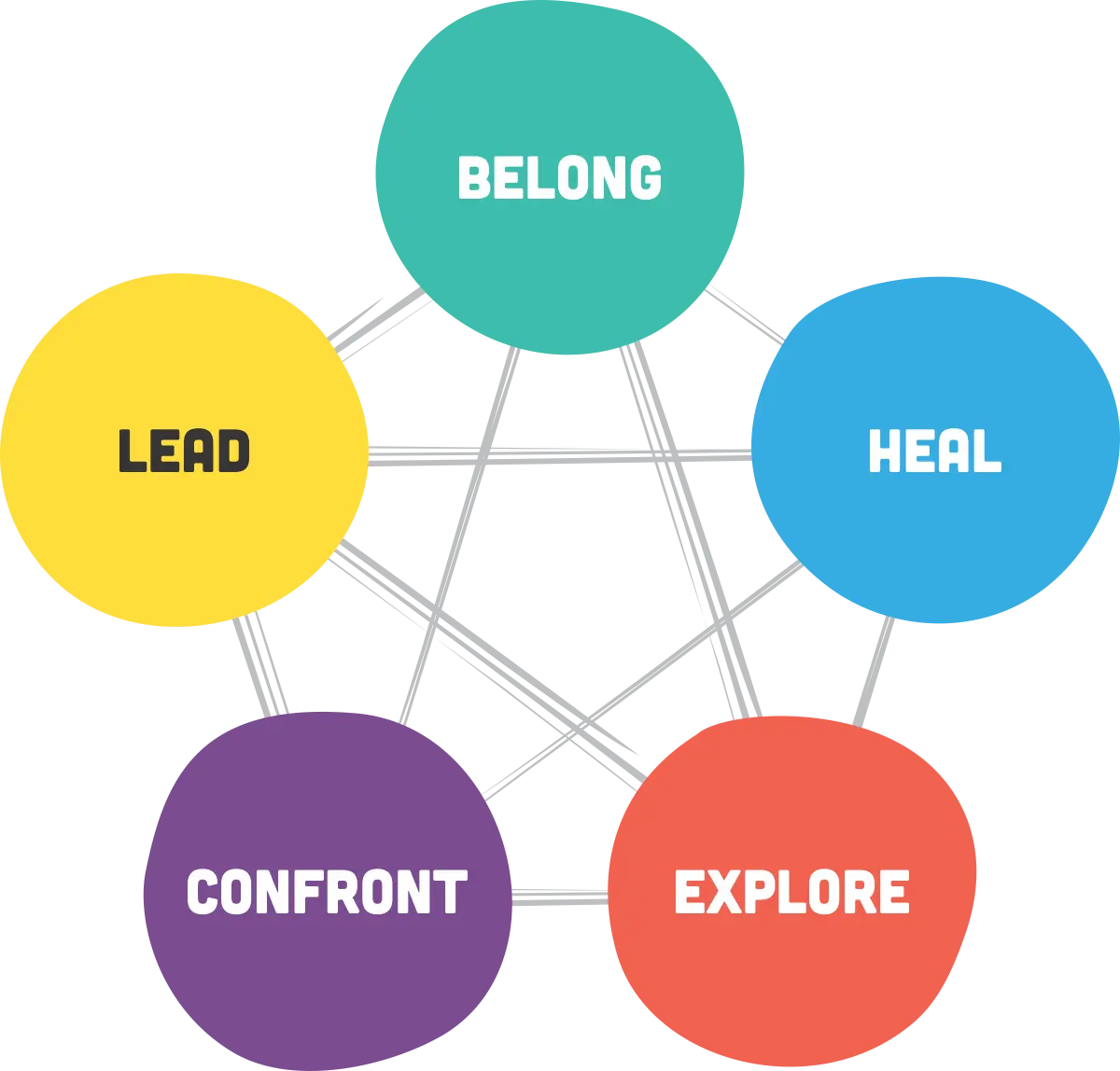

Youth Resource Cells [YRC] is our flagship programme that runs in eight diverse locations, from urban slums to remote villages in West Bengal, India. We have over 100 clusters serving 2000 children.

The YRC Programme is a long-term partnership with marginalised young people to build a sustainable, community-based approach to social transformation, with a focus on Gender Equity and Child Rights.
The programme continues to grow in response to emerging needs. An average participant spends 12-15 years within the YRC system, discovering oneself, challenging harmful social norms, and leading change.

Every young member moves back and forth through the stages as they grow within the YRC.
Belong
Heal
Explore
Confront
Lead

The YRC curriculum has evolved over the years to help young people develop SHINE values:
Self worth and agency, Human rights awareness and resilience, Integrity, Non-Violence and Empathy.
SHINE values are developed through 12 themes that are explored weekly through a series of participatory methods in three age appropriate clusters; for 6-9, 10-13, 14-17+ year olds.








Young People go through an intensive leadership journey to create youth groups (cells) in their respective communities.
Each Youth Resource Cell has its own core team which manages programmes in their own locations. The core team comprises founder leaders and mentors who are part of a regular training programme. Senior Leaders from each YRC come together centrally as the YRC Federation. They manage and support different programmes for all groups.
The first set of YRCs was set up in 2008.




Youth Resource Cells are built on the foundational values of solidarity, equality and inclusion. The programme is dedicated to healing and developing the inner resources of young people through their formative years; building Self-esteem, Integrity, Empathy, Non-Violence and Critical Thinking skills.
Shifting deep-rooted harmful social norms require open, deep and meaningful conversations; dialogues in an environment of non-judgment and empathy. Listening, negotiation, imagining change, these are necessary ingredients of transformational dialogue.
The YRC programme is run by young people for young people. Peer leaders or Mentors go through intensive and continuous capacity building to become facilitators, mentors, peer counsellors, social investigators, voices of encouragement and support. Peer facilitation is supported by pictorial games that promote dialogue.
The older youth leaders set the agenda for change in their community and drive the transformation from within. Social transformation needs a generation of young people who evolve into empathetic, compassionate leaders.
Social norm change requires a critical mass for new attitudes to become the norm, and Community Ownership is necessary for the critical mass to form. The YRC process strives to unlock the enormous potential and access the hidden reserves of Love and Compassion in the Collective Consciousness.
Children, Adolescents, Youth, Parents are organized as support groups that meet at fixed, regular intervals. They support each other, and work cohesively to claim their rights, strengthen communities and sustain change.